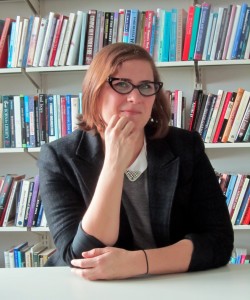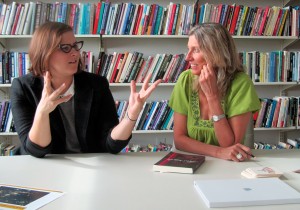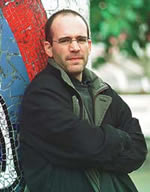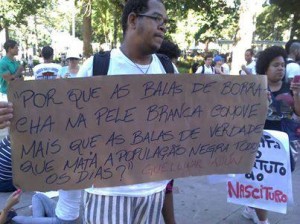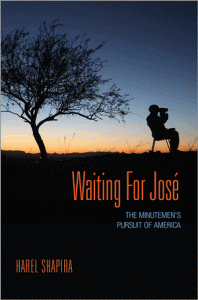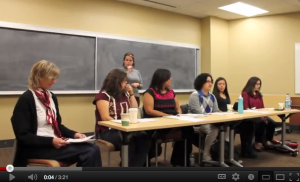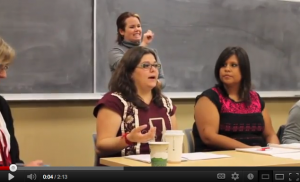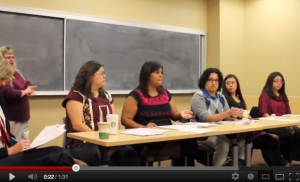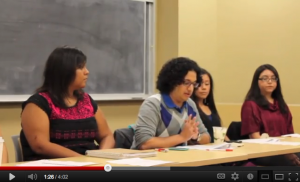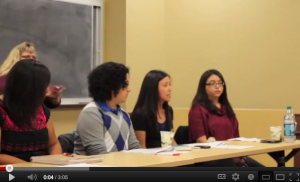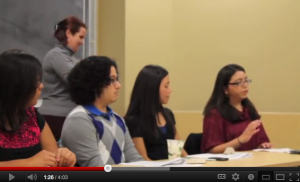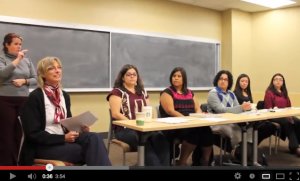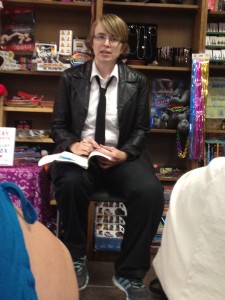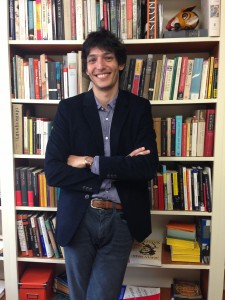
Here at the UT Sociology Blog, we strive to find new and interesting ways to highlight the people and research in our department. To that end, we present to you “Better Know A Sociologist,” where we ask 10 general questions to one of our illustrious faculty members. Today we spoke to one of our newest faculty members, Dr. Harel Shapira.
What first attracted you to sociology?
I remember being in high school and reading this book by Randall Collins. I believe it was called Sociological Insight or Thinking about Sociology, it’s one of those basic introductory books. Not a textbook so much as a collection of essays, each one dealing with a topic and showing how sociologists think about it. For example, one was on love, one was on religion, another was the economy. I think I was always drawn towards the historical, political science world of thinking. And I remember reading this and it was just…it was incredibly counter-intuitive, but there’s also this sort of obviousness about it, right? And I think that’s so wonderful about sociology. On the one hand, it’s obvious: you read it and you say, “OK, that sort of makes sense.” But at the same time, you have this reaction of “Oh, I didn’t think about it that way,” you know? And I just remember reading this book and each one of these essays made me have that reaction towards the topic, like “Oh, so religion is actually about that? That’s what we’re doing when we’re sitting around the table during Thanksgiving, that’s its significance?” And the same for love, for the economy, and all those things. So I think that that book just got me very excited about this thing called sociology that I’d never heard of and it also helped that Randall Collins is a beautiful writer and that the book was wonderfully written, and that it was short. I just thought, “Wow, there are these people that do these things , this is what they do” and I was really drawn to it and took a few more sociology classes. I should say that I was lucky enough that in my high school, there were actual sociology classes.
Yeah, that’s surprising.
Yeah, it was very cool. We had these set of classes – this was in upstate New York – where the classes were actually connected to Syracuse University, so you took half of the class in high school and then half of the class at the actual university. So it was really amazing and fortunate that they did actually have a proper sociology class.
So you got your Bachelor’s degree in sociology then?
I got my Bachelor’s in sociology from the University of Chicago. I should say that over there, as much as my “concentration,” as they call it there, was sociology, there is a very serious core curriculum and many classes are cross listed, so I took a number of classes in very different fields. As much of my education was in philosophy and history and even biology as it was in proper sociology.
But that’s another great thing about sociology, it’s that all of those different backgrounds contribute to the strength of your own sociological perspective.
Absolutely. Yeah, that’s definitely another wonderful thing about sociology.
What did you do your dissertation on?
I wrote my dissertation about the border militia group called the Minutemen, who I assume you’ve heard of. They’re this volunteer group that patrols the border between the US and Mexico trying to stop immigrants from coming across. I was drawn to it for a couple of reasons. One is a purely biographical reason: immigration and borders have played a really prominent role in my own life. My grandparents immigrated to Israel from Europe and my parents immigrated to the United States. And of course in Israel, borders and security and militarization are incredibly prominent. So in a sense, borders have been what my life has been about and I wanted to write and learn about it. But there’s this other dimension, which is that we – and by we, I mean the social sciences, sociology – we don’t put enough energy into writing about and researching the right wing. There was a movement in the 1950s with folks like Daniel Bell who wrote about conservative, right wing politics and then there was this amazing pause for almost 50 years. There’s Kathleen Blee now at the University of Pittsburgh who has done some great work. But over all we know very little, and what we do know comes from the archives. So there was also this motivation to just try and fill in this gap that exists. So I was drawn to it for those two reasons and really, I guess there’s a third one that’s very basic, and that’s that a lot of stuff I’m interested in has to do with how people tick in ways that I find very different than myself. How people go about and do something that I don’t do and that I would never do and trying to figure out how it is that they do this and I don’t do it, what’s different about us. But at the same time, also trying figure out what is actually similar about us yet leads us in different pathways and different directions.
At the same time, I’ve heard you speak about Waiting for Jose, the book that came out of your dissertation, and one of the most interesting things you discussed was the how a loss of community and the sense of anomie that comes out of it is partly why these men band together along the border, which links to some of what people like Robert Putnam have said about contemporary society. But it sounds like that wasn’t really what you thought you were going to find or what you were originally interested in when you went to the field.
Yeah, I know! I think I had the good fortune of having a few professors around me at Columbia where I did my dissertation who for the most part let me just go out and get my hands dirty without very much pregiven analytical or even theoretical frames. Just to sort of go there and see what I find, see what’s interesting, see what strikes me, and it was in the process of going down there and then coming back and looking through field notes, talking with friends and professors that I came to figure out what the sort of story I want to tell about them is, what kind of story is the one that captures who these folks are. And what came out is that they have this diagnosis about America that is very far away from  what we think about when we think about right wing, conservative extremist politics. I mean, there’s certainly things that they say that fit that mold, the mold people like Bell and Hofstadter talk about, but they also say so many things that don’t fit that mold that in fact fit – and here’s where Putnam comes up – that fit things that Robert Putnam says and talks about. Not just Putnam, but Putnam is a great example because so many of us embrace Putnam in terms of giving a diagnosis of what is happening in America, what is wrong with America, what we might need to do to make it better. So that was sort of this moment where I needed to pause, and really think, “wait a minute, what is going on here? This is not what I expected. How do I make sense of it?” And from there it became about actually trying to figure out not just these people’s beliefs, their diagnosis of America, but trying to comprehend how even though they think things that are not so different from “the rest of us”, how come they arrive at such a different place. It’s very easy to say “Oh, people believe these things that are very different from me and that’s why they do different things,” but it becomes much more difficult and I think actually much more accurate to say “Oh, they think things that are not that different but yet they get to a different place.“ And from there, not just thinking about their beliefs about immigration or America but thinking about their life experiences, their pasts, and seeing how much their experience of being soldiers – these are almost all military veterans and people who served for 25, 30, 35 years, essentially their whole lives as soldiers and are now aging veterans – seeing how these past experiences make this activity of patrolling the Border a really meaningful in a way that can not be reduced to simply an expression of ideology.
what we think about when we think about right wing, conservative extremist politics. I mean, there’s certainly things that they say that fit that mold, the mold people like Bell and Hofstadter talk about, but they also say so many things that don’t fit that mold that in fact fit – and here’s where Putnam comes up – that fit things that Robert Putnam says and talks about. Not just Putnam, but Putnam is a great example because so many of us embrace Putnam in terms of giving a diagnosis of what is happening in America, what is wrong with America, what we might need to do to make it better. So that was sort of this moment where I needed to pause, and really think, “wait a minute, what is going on here? This is not what I expected. How do I make sense of it?” And from there it became about actually trying to figure out not just these people’s beliefs, their diagnosis of America, but trying to comprehend how even though they think things that are not so different from “the rest of us”, how come they arrive at such a different place. It’s very easy to say “Oh, people believe these things that are very different from me and that’s why they do different things,” but it becomes much more difficult and I think actually much more accurate to say “Oh, they think things that are not that different but yet they get to a different place.“ And from there, not just thinking about their beliefs about immigration or America but thinking about their life experiences, their pasts, and seeing how much their experience of being soldiers – these are almost all military veterans and people who served for 25, 30, 35 years, essentially their whole lives as soldiers and are now aging veterans – seeing how these past experiences make this activity of patrolling the Border a really meaningful in a way that can not be reduced to simply an expression of ideology.
Why did you decide to work here at the University of Texas?
Well, it helped that they offered me a job. [laughs] Well, OK, first, it’s a serious research institution. People are doing serious work here, I got that feeling from the beginning. People are dedicated to doing really serious research. Not just in the sociology department, I felt that was true across campus. So it was great to feel like you’re coming to a place where it’s not just your department where you can find people doing interesting things. You know, the history department here is extremely strong, American Studies, the law school, the business school, the economics department. There’s so many powerful, important institutions here, the Harry Ransom Center, the LBJ and Benson Libraries. It’s just very exciting to be at a place where there are so many resources and so many interesting things happening. It was also important for me to come to a place where I like the city and so the fact that it was in Austin was very important to me.
What’s been your overall experience of Austin? Do you have any likes or dislikes?
Um, it’s incredibly hot. I still don’t get what they mean by “dry heat.” I’ve spent a lot of time in Tel Aviv, and it’s funny because there are ways in which Austin reminds me of Tel Aviv, by which I mean it’s very hot and it’s kind of a utilitarian, plain looking city in terms of architecture and the highways with all these big concrete buildings. But you know, you see these ramshackle little bungalows but then you go inside them and the houses are beautiful. You see these restaurants that look dilapidated and then you go inside and it’s amazing inside: the architecture, the food, the people, everything. So it reminds me of Tel Aviv in the sense that externally, it’s kind of ugly but internally, there’s a lot of character and quality and beauty. I’ve also been struck by how young this city is. I find myself every now and then driving and trying to see if I can spot anyone who is 60 or over and I swear, I don’t think I’ve found one old person in this city yet. And that’s – no offense to old people – kind of exciting to always be around young people who bring all this energy. For example, people are always biking around everywhere, which I really like. It’s just got this sort of flavor to it and I don’t think there’s that many cities in America that have flavor, you know? It’s got character. You come to Austin and you go, “Ah, OK, this place is different than most places, it’s got something going on” and I think that is just a really, really exciting thing to be around.
If you could teach one sociological concept to the world, what would it be?
I don’t know if this is a sociological concept; more like a way of thinking about the world. But I would just say…I’m teaching Introductory Sociology this semester and if I can get one thing across to the students – and this applies not just to the students but to anyone – it’s just to recognize how powerful society is. To recognize as social these things in the world that are social. Let’s take the example of the institution of the University. The University is something that we’ve created, right? People got together and they said “we need education, let’s have these criteria for education, let’s produce this thing called the University,” which sort of came from religious training and so forth, “let’s have these criteria for admission, what are the criteria for admission, etc.” There’s so much that gets rolled up in these things. And you know, you can go all the way down. Then you get the sports team, the paraphernalia around the sports team, you get burnt orange, which comes to signify so much. And that flows into all these sorts of political questions. Affirmative action was a big issue here recently, for example. These are all profoundly social things that we have created. They weren’t always there and I think it’s so important to step back and recognize the existence of these things and how powerful they are in shaping our lives. Obviously, we could go on and on down the list: gender, race, etc. Just to recognize that these are social things. We’ve produced them, they change over time, and look how they influence our lives. And I think so often – and this kind of goes back to my experiences with the Randall Collins book and its counter-intuitiveness – we go through our everyday lives living with these things without recognizing that we’ve created them or that these things have a history and that these things are impacting us in ways that we kind of take for granted and don’t even reflect on.
What’s the most rewarding part of your job?
Getting paid to think. I mean that honestly. I think getting paid to think and do research is such an amazing luxury. Our conversation right now, I’m getting a paycheck for this conversation. That is just amazing. And it’s an incredible luxury and I think we are so fortunate to be in this position. So many people would love to be doing this, but they don’t have the luxury to do it. Getting paid to do this wonderful thing is remarkable. I think about my parents and how much they paid for my education, or how much anyone or anyone’s parents pays to go to school. But right now, we’re getting paid to go to school, right? It’s actually mind blowing and I think it’s such an amazing thing. And related to that I guess is being around all these remarkable people who are smart, interesting, and you like too. Certainly there are some jerks in academia, but at least they’re interesting jerks. [laughs] I think being surrounded by people who are so interesting and smart and have committed their lives to thinking and doing research is incredibly rewarding in itself.
Who is one person in the department besides yourself that is doing really interesting work and what is it?
Actually, I want to give two people, and these are my fellow members of the “new faculty cohort,” as we like to refer to ourselves. I think both Ken and Dani are doing really amazing work. In a way, I think their work is kind of connected to each other. Dani does this beautiful ethnographic work where, you know, we tend to think of the economy as a thing that naturally exists, right? There’s this economy, it’s out there in the world and we’re economic actors. Everyone is born trying to maximize their profits and to minimize their costs and we, by our so called nature, know how to be economic people. It’s in our blood, it’s who we are. You know that you’re supposed to get more money and lose less money. And Dani does this amazing things where he says “actually, no, this is something we’re socialized into doing. One becomes an economic actor. One learns how to act economically in an economic society.” And he has this great ethnographic project which looks at how people participated in these “Get Rich” clubs where they’re taught about how to invest their money. I think it’s wonderful because again, it’s counter-intuitive: we take for granted the idea that everybody knows how to be an economic actor but actually we don’t. And I love his research because when I first read it, it made me recall how my grandfather’s brother in Israel would always keep his money in his mattress. He was afraid to give money to the bank. What do you do with your money? You put it under your mattress. And I remember my father having this conversation and saying “Look, if you put the money in the bank you can get interest.” But he didn’t trust the bank and he didn’t understand the concept of interest. However, as a result of these conversations he finally put the money in the bank. So in a sense, he’s kind of became this new economic actor. But for the last twenty years of his life, the guy would wake up every morning at 6am, take a hour-long bus ride to the head office of the bank, ask to see the manager, and ask for a detailed receipt showing that his money was there. He wanted to “see” the money. It was hard for him to grasp this ethereal thing of his money being stored in the bank. So that’s just a long way of saying I also like Dani’s work because I can make connections between it and some of the things I’ve thought about in my own life, which I think is a hallmark of all good sociology. And then with Ken, I think he does something in a way that’s similar which is to talk about how the new economy today is so driven by finance. First of all, finance is this thing where no one even knows what it is. My friend says he’s an investment banker: I have no idea what that is. So I think part of what Ken does is give some substance to it, and he does that by talking about the consequences of finance to the way our society is organized. For example, one of the interesting things that he shows is how the increased emphasis on finance, the way the economy is driven by finance has consequences for say, labor unions, for people’s sense of themselves as workers and for what kind of work we value. That “traditional” work, in a sense, has been really devalued as a consequence of this new finance-driven economy.
What are you current research interests? What are you looking at these days?
I’m doing an ethnographic project right now on gun owners, focusing primarily in Texas. At a basic level, I want to know why folks own guns. I’m not a gun owner myself, but there’s an incredibly large population in America and especially in Texas that are gun owners. I want to try and make sense of that. When I was doing my dissertation, I had the chance to experience being around people who were all gun owners, and I remember sleeping in this tent at one point. There were four people in the tent, and there were a whole bunch of guns around us. We slept around guns and I couldn’t sleep the entire night. I was terrified. There were these guns around me and I was terrified. And I remember thinking “for these folks, having the gun gives them a good night’s sleep.” And again, I find that really amazing: how is it that for me, if I had a gun in my house today, I would be completely ill at ease, but for other people, it’s the precise opposite? Trying to make sense of that is part of what I’m interested in and also I’m sort of interested in that following George Zimmerman, we have this discourse of self-defense in America. We talk about self-defense so much and of course, in the trial what the jury was asked to decide was whether he was acting in self-defense or not, and I wonder the extent to which, when we talk about self-defense, we’re missing out on the fact that it’s not just about the individual. When we think of self-defense, we often think of the individual who is defending themselves but actually a lot of times, when people act out of “self-defense,” they’re thinking about a larger group, right? Often a group that has historical and collective memories, in other words, it’s not just about some crime or encounter happening at the moment, but something that happened a long time ago. So they’re not owning the gun just to protect themselves but to protect something much bigger.
What’s one book you’ve read over the past year that you’ve really enjoyed and why?
Katherine Boo has this book called “Beyond the Beautiful Forevers” and it’s about slum dwellers in Bombay, India near the airport which is a relatively new slum as far as slums go. I think it’s about 10-15 years old. It emerged because of the fact that Bombay built this new airport and all these slum dwellers from other slums moved there because they do a lot of scavenging and could find a lot of construction materials from the builders and things that they could take and then sell. Lo and behold, fast forward 10-15 years and now 3,000 are living in this slum. And Katherine Boo – a journalist that’s written a lot for the New Yorker – goes and lives for a few years in the slum. And she tells this story about the people living in the slum. First of all, the book is beautifully written. But also, even though she’s a journalist, it’s some of the best sociology that I’ve read in the past year. The thing that I think she does really well beyond the amazing writing is it’s a book that on the one hand, is a story about suffering. Incredible, incredible suffering. But you can’t help but see at the same time this amazing resiliency. And you leave with both those feelings, right? You feel “this is awful, I can’t believe this exists” and without a doubt you leave thinking “wow, this is such an awful situation for these people and their lives within this slum” but you also leave with this – and I don’t want to sound too Oprah Winfrey – this renewed sense of hope or renewed sense of the power of humans to exist and love.
And that kind of overlaps with your own work, too. For the Minutemen, they had these feeling of profound disaffection, alienation, and loss of structure and therefore were fashioning meaning and connection in the ways that they could. And there’s a certain heroism in that as well.
Definitely, good point!
What do you like to do in your free time?
Netflix and fly fishing.
Netflix and fly fishing?
Yeah. I’m still looking for places to go fly fishing in Texas. In the northeast, I would go to upstate New York, the Catskills, or Pennsylvania. I’ve heard rumors that there are some places in Texas to go fly fishing…
What exactly is required for fly fishing? Do you need a fast moving river? A deep river? Just a river period?
There are different things, but yeah, you need a steam that is relatively fast moving and most importantly you need fish in it…..
Yeah, I imagine that’s important.
Mostly I went trout fishing, and yeah, I just love it because it’s….first of all, it’s an activity that I prefer doing by myself as opposed to other people, and that might be the only activity where that’s the case for me. Also, it’s incredibly calming and frustrating at the same time. And just sitting in the amazing scenery it’s a great way to see things. I love just driving around with your fly rod in the car and you see a stream and you just stop and go in there for an hour or so and then you keep going to the next spot. And I also just like it because Hemingway liked it, and he’s my favorite writer.
